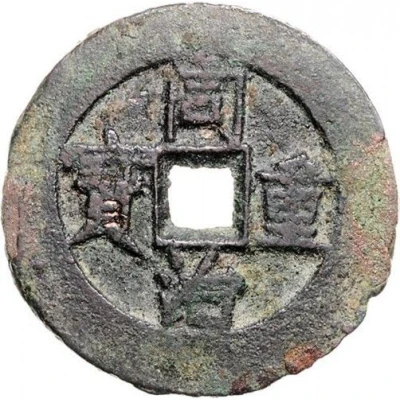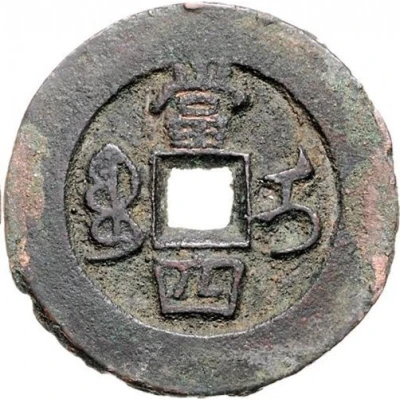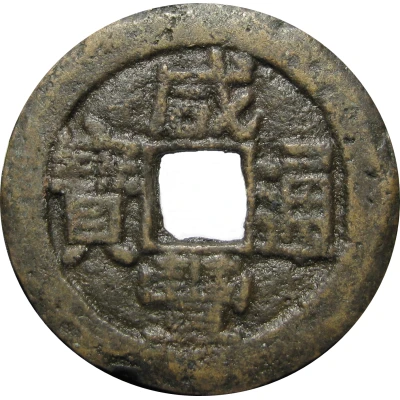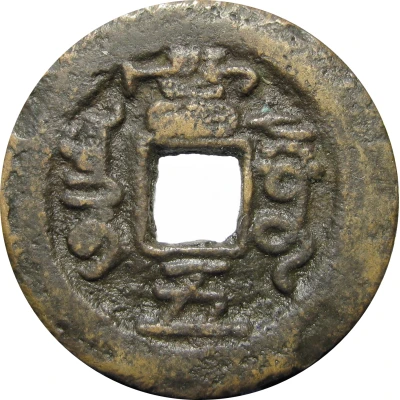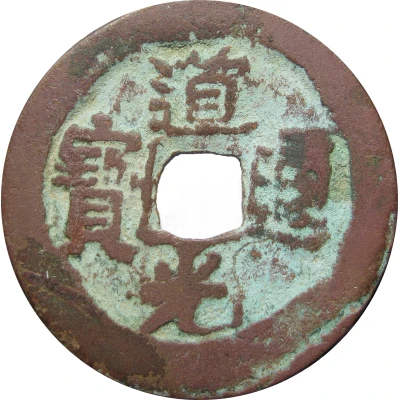
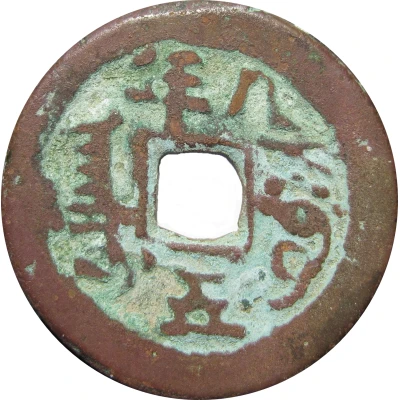

© Ollisaarinen (CC BY)
5 Cash - Daoguang Tongbao; Aksu ND
| Copper | 4.42 g | 24 mm |
| Issuer | South Xinjiang (Xinjiang region) |
|---|---|
| Emperor | Daoguang (道光帝) (1820-1850) |
| Type | Standard circulation coin |
| Years | 1829-1850 |
| Value | 5 Cash |
| Currency | Cash (1759-1909) |
| Composition | Copper |
| Weight | 4.42 g |
| Diameter | 24 mm |
| Thickness | 1.5 mm |
| Shape | Round with a square hole |
| Technique | Cast |
| Orientation | Medal alignment ↑↑ |
| Demonetized | Yes |
| Updated | 2024-10-04 |
| Numista | N#175246 |
|---|---|
| Rarity index | 94% |
Reverse
Two Chinese ideograms above and one below, one Uyghur word to the right, and one Manchu word to the left.
Scripts: Chinese (traditional, regular script), Mongolian / Manchu, Old Uyghur
Lettering:
年八
ᠠᡴᠰᡠ اقسو
五
Translation:
Ba Nian / Wu / Aqsu / Aqsu
Year 8 / 5 Cash / Aksu (mint) / Aksu (mint)
Edge
Plain
Comment
The year refers to the year of introduction of this type, which was the 8th year of Daoguang (1828). While originally issued as military payment, the values indicated on the coins did not match their weight. These coins were actually used on the market with a value of 1 Cash and not 5 Cash.Interesting fact
One interesting fact about this coin is that it was minted during the reign of the Daoguang Emperor, who ruled China from 1820 to 1850. This was a time of significant social and economic change in China, including the Opium Wars and the subsequent unequal treaties with European powers, which had a profound impact on the country's economy and trade. Despite these challenges, the Daoguang Emperor's reign also saw significant cultural and artistic achievements, including the development of literature, painting, and porcelain production. This coin, with its intricate design and craftsmanship, is a testament to the artistic and cultural achievements of this period.
